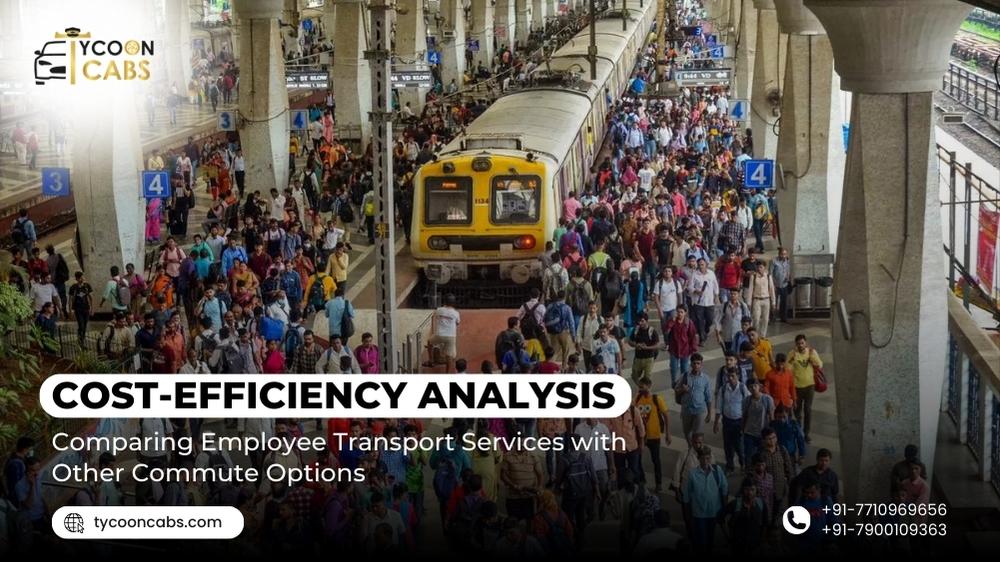Modern urban landscapes have evolved to become dense hubs of corporate activity. For the myriad of professionals navigating these bustling cities, commuting has grown beyond a mere daily activity—it’s a significant component of their daily lives. One burgeoning solution that’s increasingly capturing corporate interest is Employee Transport Services (ETS), particularly in rapidly urbanizing economies like India. This article takes a closer look at the cost-efficiency of ETS in comparison to conventional commute alternatives.
What Are Employee Transport Services?
ETS, as a concept, isn’t just about transporting employees. It’s about ensuring a company’s workforce arrives on time, refreshed, and ready to face the day’s challenges. Employee Transport Services in India have adapted to the unique challenges presented by the subcontinent, offering solutions ranging from corporate car rentals to dedicated shuttle services, ensuring optimal route planning amidst often unpredictable traffic conditions.
The Hidden and Apparent Costs of Traditional Commuting
While the direct costs of commuting, such as fuel or public transport tickets, are evident, there are less obvious expenses. The wear and tear on private vehicles, coupled with depreciation, and the mental stress and fatigue from long, traffic-filled commutes, are real costs borne by employees. There’s also the hidden cost of lost productivity, with employees often arriving at work already drained from their journeys.
The Multifaceted Benefits of Employee Transport Services
a. Economic Advantages
Contrary to initial perceptions, ETS can lead to immense cost savings. By capitalizing on corporate car rental services or negotiating bulk transport contracts, organizations can harness economies of scale. This bulk approach can dramatically reduce the overall per-employee expense compared to if each individual were to commute separately.
b. Boosting Productivity and Morale
A comfortable and reliable commuting solution can significantly enhance an employee’s workday outset. By alleviating the daily commute stress, employees are better poised to start their workdays energized, leading to increased productivity. Furthermore, by demonstrating concern for their well-being, companies can boost employee loyalty and morale.
A Detailed Cost Comparison
A more in-depth analysis reveals the following cost dynamics:
- Private Cars: Beyond fuel, there’s vehicle maintenance, parking fees, and the inevitable depreciation. The environmental footprint is also significant, with more cars leading to more emissions.
- Public Transport: While economical, it lacks flexibility. Employees are bound by schedules, leading to potential time wastage. Also, during peak hours, the lack of comfort can be a concern.
- Taxis or Rideshares: Highly flexible, but the costs quickly add up, especially if used daily. Moreover, price surges during peak hours can be unpredictable.
- Employee Transport Services: Offers a balanced blend of flexibility and cost-efficiency. The added benefits—like fostering employee well-being and potential environmental benefits from reduced vehicles on the road—make it an attractive choice.
| Commuting Option | Advantages | Disadvantages |
| Private Cars | – Personalized space – Flexibility of commute timing – Convenience |
– High maintenance costs – Parking fees – Vehicle depreciation – Significant environmental footprint |
| Public Transport | – Economical – Reduces individual carbon footprints |
– Bound by schedules – Potential discomfort during peak hours – Time wastage if not aligned with the user’s schedule |
| Taxis or Rideshares | – High flexibility – Door-to-door service |
– Cumulative costs over time – Price surges during peak hours – Potential wait times |
| Employee Transport Services | – Cost-efficient at scale – Boosts employee morale and productivity – Reduced environmental impact with shared rides |
– Requires coordination – Fixed routes might not always align with every employee’s residence |
Spotlight on Corporate Car Rentals
An exciting facet of ETS is the rise of corporate car rentals. Companies can now rent high-quality vehicles tailored to their needs without the associated ownership challenges. This system not only ensures standardized services but also allows for adaptability in terms of fleet size, meeting the company’s dynamic needs.
Conclusion
As urban areas continue to grow and evolve, the way we approach daily commuting needs to innovate. ETS, particularly models like Employee Transport Services in India, offers a blend of cost-efficiency and added benefits, making it a solution worth considering for forward-thinking companies.

